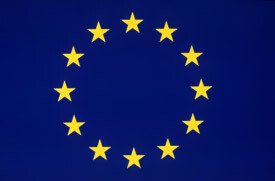
Visa Requirements For St. Kitts – Nevis
Basseterre, St. Kitts – Nevis
November 27, 2008 (CUOPM)
Nationals of the Federation of St. Kitts and Nevis, travelling on valid St. Kitts and Nevis passports will no longer needs visas to travel to several European countries. St. Kitts and Nevis is the first of six countries to sign the agreement.
St. Kitts and Nevis’ High Commisioner to the United Kingdom, His Excellency Dr. James E. Williams said the name of the Federation has once again been etched in the historical annals of time, with the signing in Brussels of the EU/St. Kitts and Nevis short-term visa waiver agreement on 12th November 2008, at the headquarters of the Directorate General, Justice Freedom and Security, in rue du Luxembourg 46, Brussels, Germany.
“According to the terms of the agreement, anyone who carries a valid St Kitts and Nevis passport (normal, diplomatic, official etc.) will be able to travel to any Schengen country without needing a visa. Holders of valid passports from the EU countries concerned will likewise be able to travel to the Federation without needing a visa,” said High Commissioner Williams, adding that the arrangement however does not apply to the United Kingdom and Ireland.
He said that the short-term waiver allows persons concerned to stay for a maximum period of three months within a six month period following the date of first entry into the territory of each of the member states.
“While it covers France and the Netherlands, it does not cover their dependent territories. This will be covered by a separate agreement. The short term visa waiver agreement does not cover persons entering the member states for the purpose of work,” said the St. Kitts and Nevis High Commissioner.
The agreement is being handled in phases, but St. Kitts and Nevis was fortunate to be included in the first phase with Antigua and Barbuda, Bahamas, Barbados, Mauritius and the Seychelles.
High Commissioner Williams and a number of other High Commissioners based in London have been ardently pursuing this issue for over three years and this year saw matters finally falling into place. High Commissioner Williams and his colleagues travelled to Brussels many times during this year and worked with the EU representatives to draft and adjust the agreement several times.
In his opening remarks at the signing session, the Director General of the European Commission, His Excellency Mr. Jean Louis de Brouwer referred to the signing as a historical landmark and a definite plus for the development of relations between the European Union and developing countries.
He congratulated the countries which ably participated in the pioneering event for their dedication, co-operation and determination to make the event the tremendous success it was, despite a few setbacks which delayed the process.
The next stage involves translating the document into the languages of all the EU parties concerned and then have them sign it together with the European Parliament.
The Director General also gave the assurance that once this signing phase is complete, he would seek approval for the agreement to take immediate effect, while waiting for the final stage of the process to be completed. This could take the form of a provisional implementation and member states will be notified when it materialises.
The ceremony ended with a champagne toast involving members of the European Commission negotiating team, and ambassadors from Barbados, St Kitts and Nevis, Mauritius and the Seychelles.
Antigua and Barbuda and the Bahamas signed their agreement on the 19th November 2008. The actual implementation date will be made available at a later date within in the New Year.
Schengen countries are Austria, Belgium, Czech Republic, Denmark, Estonia, Finland, France, Germany, Greece, Hungary, Iceland, Italy, Latvia, Lithuania, Luxemburg, Malta, Netherlands, Norway, Poland, Portugal, Slovakia, Slovenia, Spain and Sweden.